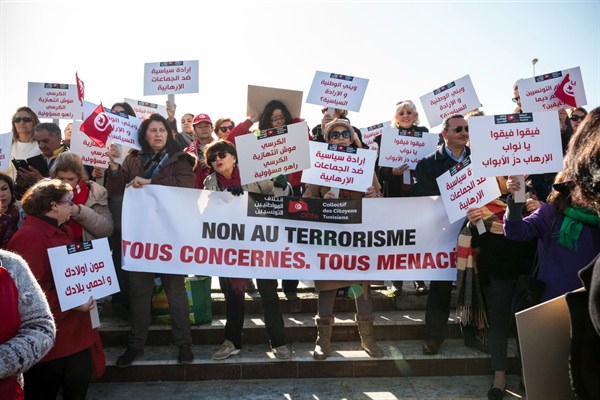Within the span of a week, Tunisia’s government was lauded abroad for passing a comprehensive anti-corruption law and lambasted at home for its muddled response to the growing number of its nationals returning from fighting among the ranks of the so-called Islamic State in Iraq and Syria.
It should come as no surprise that Tunisia made headlines, on one hand, for progress on democratic reform and, on the other, for lackluster security policies. Relative to its neighbors, the country emerged relatively unscathed by the popular uprising that ousted former dictator Zine el-Abidine Ben Ali in 2011, and it has been praised as a model for democratic transitions in the Arab world. Yet as Tunisia consolidated its nascent democracy, it became increasingly vulnerable to terrorism, facing 50 attacks at the hands of the Islamic State and other radical groups since 2013.
The unraveling security situation hammered Tunisia’s already-fragile economy, particularly following an attack on a beach resort in the city of Sousse in 2015 that left scores dead, primarily British tourists. The attack, like one before it on a museum in Tunis, the capital, struck a blow to Tunisia’s vital tourism sector, further undermining the grim outlook for unemployed Tunisians, particularly college-educated youth. In 2016, 40 percent of Tunisians under 30 years old—almost a third of the working-age population—were unemployed.

